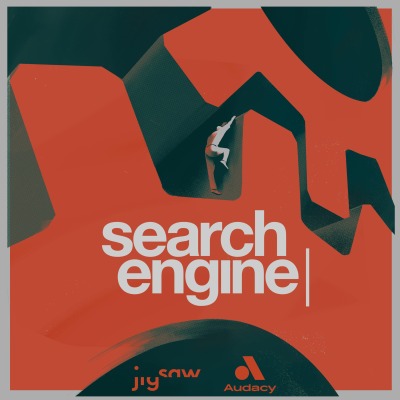Opting Out of Opting Out
On Father's Day and trigger warnings, plus the Mississippi River, the legacy of "40 acres and a mule," AI runs for office, elephant names, and more.
If you’re anything like me, you’re on mailing lists for countless brands. Maybe you’re smart and quickly unsubscribe as soon as you make it on their lists. Maybe you’re more like me, thinking, “Meh, I’ll stay on this because maybe it will give me access to sales at some point.” If you do stay on those lists, I’m sure you’ve gotten the emails that say “Hey, Father’s Day is coming up. If you’d prefer not to receive any Father’s Day emails from us this year, just click here to opt out.”
Mother’s Day is another big holiday for this one, too. They’re the most common ones to elicit these sorts of anti-triggering emails (from my anecdotal experience). And until a year ago, I would have greeted each with a quick swipe to delete because the presumed underlying conditions (either a parent’s death or a terrible (or nonexistent) relationship with a parent) applied to me. Put directly: I had nothing to worry about when it came to these emails; I was not their intended targets.
But last year in April, my dad died. It just so happens that his birthday is right next to Father’s Day, so this year, it felt like a heavy weekend coming up. When I saw the emails come through, I’m not sure what I expected to feel, but I know what I did feel: a low-grade annoyance.
Just a week or so ago, I had listened to an episode of the podcast Search Engine. The episode’s title was “What do trigger warnings actually do?”

It’s a really thoughtful examination of the history of trigger warnings and some actual science that’s being done around them. I’d encourage you to listen to it regardless of what your opinion on the concept of trigger warnings actually is. But I can tell you what stuck out in my mind: The listener who’d written in to prompt the episode had lost her brother to suicide, and when she watched a video created by one of her favorite YouTube creators that came with a trigger warning related to suicide, it didn’t make her feel better; it offended her.
I found it offensive, personally, because the idea that I’ve forgotten that suicide exists or that hearing someone died by suicide would be upsetting, like no, what’s upsetting is that I lost my brother. I know suicide exists. It happened to someone I loved.
I went back and listened to the episode again, on the drive home to Tennessee to celebrate both my dad’s birthday and Father’s Day with my mom and siblings. I felt exactly like the woman in the podcast. I understood where the impulse for those emails that had annoyed me came from (or assume I do), but the cruel reality of it was that nothing the world can offer prepares for the really triggering stuff.
This isn’t meant to be a crusade against trigger warnings, though the podcast makes a good case that they’re not all that effective, and it references The Coddling of the American Mind, a book that discussed trigger warnings as they related to college coursework and speech in critical terms, which I found compelling and definitely worth everybody’s time.
But the emails that triggered these thoughts are a way of talking about just how fleeting thoughts that have the power to devastate me can be. It takes nothing much at all. The emails feel pointless (however well-meaning) because it’s not like the triggers are the magic words “mother” or “father.” I’m much more likely to be triggered by a random September email that shows me something that would have made a great gift for him, but nobody expects every single email to worry with warning readers of triggers they could never guess. I don’t expect a classic-rock station on the radio to give a disclaimer every time they play Boston’s “More Than a Feeling” no matter how much to hear it will take me back to the passenger seat of my dad’s truck as he drove me home from Boy Scouts and told me about how big this song had been when he’d been in the Marines. I didn’t expect the pro shop attendant over the weekend to say, “You know, golf is often associated with dads; to play it may conjure memories for you,” though it was hardly avoidable as my brother and I stood over shot after shot. Fried catfish dinners in a restaurant, any random trip to a Lowe’s, and about a million other seemingly innocuous interactions with the outside world conjure my dad’s memory. There is no way to avoid them, and that’s one of the terrible truths of losing a loved one: We must manage to navigate these constant reminders in a world that has no idea.
If there’s one constant in life since my dad’s death, it’s been this: The world just keeps on spinning. It seems so basic, so banal, but it’s truly one of the most difficult aspects of coping. We know this instinctually, from all the ways life feels like it’s suffocating us in private: What do you mean, “What are my thoughts on the merger?” My marriage is falling apart. You can insert all kinds of real-life events: just had a falling out with my best friend; my bills are way past due; my kid is flunking out of school. Happens to millions of people every single day.
And everyone is expected to soldier on. Sure, you can take time off when you’re feeling overwhelmed, if you’re lucky enough to work a job that allows that kind of a thing. But what about the times when your trigger doesn’t announce itself? You don’t know ahead of time that Wednesday would be a good day to be off because I’m probably going to have a spiral at some point. What about when it’s fleeting and ruins just an hour of your day? Or 30 minutes? Or only 10?
It’s a nice thought that trigger warnings might protect us from all that’s out there that could potentially upset us. I hope the fact that trigger warnings aren’t likely going away means that someone somewhere is helped by them.
I don’t think I ever will be though. I don’t think I’ll ever say “opt out” to these emails because I don’t think I’ll forget about the holidays themselves or the human beings I’m supposed to be celebrating on them just because I get fewer emails in the bottomless pit that is my inbox. But this weekend I remembered a million tiny things that brought tears to my eyes, and in certain moments, I could see the desire to avoid that reaction. I get it. I do.
Those memories are a blessing and a curse: They have the power to ruin a day or distract from a meeting or disrupt a peaceful night’s sleep, but they also commemorate a rich life that colors so many insignificant aspects of my day-to-day existence. I don’t think I’d have it any other way.
Ten Worth Your Time
- An unspoken trigger warning for me is any time Wright Thompson writes on fathers, and this short little dispatch for the only retailer Huckberry is no different.
- I found this excerpt from Bryce Upholt’s forthcoming book on the Mississippi River in LitHub beautiful in its own right but doubly so for the ways it made me think of my dad’s love for rivers.
- Stay weird, my beloved Wyoming. Stay weird. In WIRED, I read a story in which a man is running for mayor of Cheyenne but running openly as a puppet. Who’s the mastermind that will be pulling his strings if he were to win? A Chat-GPT-powered chatbot, of course. It remains to be seen whether the stunt will be allowed, by either the state of Wyoming or OpenAI, but even if the gimmick is too much for people to actually vote for this bot, it does raise the possibility of elected leaders just offloading decisions to AI. I don’t mean that in a fear-mongering way, but simply in the head-shaking, dumbfounding way that finds it less than ideal that a person who’d fought so hard for your vote would outsource critical thinking to a bot. It’s like those publishers and editors who push for integration of Chat-GPT into the creative or journalistic workflow: Why does that seem like a good idea to you? It invites your own obsolescence.
- Here’s where I zag from my previous point about AI. Mother Jones has produced a remarkable interactive package of stories that could reasonably be thought of as the follow-up and extension of Ta-Nehisi Coates’s “The Case for Reparations.” 40 Acres and a Mule was the earliest attempts at reparations for slavery, and though many titles between 4 and 40 acres in size were issued by the U.S. government, the assassination of President Abraham Lincoln was pretty much the end of the it. His successor, Andrew Johnson, stripped the land away and returned it to its previous owners. This package of stories resulted from years of research to figure out the names of 1,250 Black men and women who’d been given land and subsequent genealogical research to locate the living descendants of those men and women. “For the first time, these living Black Americans were made aware of the specific land that had been given to and then taken away from their ancestors.” One of the key steps of this process was training an AI tool to recognize certain documents to narrow down the vast number of possibilities to something manageable (which is detailed in a behind-the-scenes story about how the research and reporting was done). Explore the entire package here.
- I recently began listening to the audiobook of The Mother Tongue: English and How It Got That Way by Bill Bryson. He spends a great deal of time in the early chapters talking about how humans speak at all, so it felt fitting that while in this mode of thinking about how we communicate, Scientific American published a story about a study that said we’re not the only ones who can do it like we do. Elephants have names and use them and respond to them.
- I don’t have any personal experience with Ozempic or its competitors, other than struggling with diets and occasionally whining that a miracle drug seems a lot easier than watching what I eat and exercising. I wouldn’t qualify for the drugs, not by a long shot, and as a result, I have let a lot of the news about their rise pass me by. I know they’re incredibly popular and that they work, but beyond those truths, I knew next to nothing. I found The Journal podcast series about the drugs to be great listening and very informative. It’s only four episodes long, and it’s spread throughout The Journal’s regular feed, so while there, you might find lots of other interesting episodes from journalists at The Wall Street Journal. Check out the first episode here.
- The Atlantic published a whopper of a story by George Packer (25,000 words, according to Axios, and the second-longest ever published by the magazine) on “What Will Become of American Civilization,” through the lens of one city (the “most American city,” the print issue claims): Phoenix, Arizona. It covers a lot of ground and just might be essential reading in this an election year.
- This oral history of the once ubiquitous yellow Livestrong bracelets in Texas Monthly was a blast from the past. The work Livestrong continues to do, from its home base in Austin, Texas, is brought home by this paragraph: “The year the Livestrong wristband was launched, some 1.3 million Americans were diagnosed with cancer. This year that number will be more than 2 million. Our population is aging, and technological advances now allow us to catch cases earlier and more often. Cancer mortality rates have been on a steady decline since the early nineties, but this downward trend is threatened by more cases among adults under the age of fifty and an increase in incidents of six of the most common cancers: breast, prostate, uterine, pancreatic, kidney, and melanoma. More than 600,000 patients will die of the disease in 2024, with another 18 million living either with cancer or in fear of its return. If the average patient has three dedicated caregivers, then right now, millions of Americans are watching their loved ones go through hell or going through it themselves.”
- I was devastated to learn that the podcast Longform will be ending. It’s no small statement to say it was one of the driving forces that inspired me to leave the practice of law and return to graduate school to pursue a master’s in journalism. I have learned so much from each and every issue, and I can’t stop myself from thinking (like countless others, I’m sure) that I’d get along so well with hosts Max, Aaron, and Evan, if only they’d be willing to hang out with me. I hope the episodes stay available for as long as there are podcasts; I know I’ll enjoy revisiting them. Check out this ode to the podcasts and its hosts from Defector.
- The publication of Griffin Dunne’s memoir The Friday Afternoon Club gave Maris Kreizman a reason to recommend writing from one other member of this family of storytellers. It wasn’t Griffin’s uncle, journalist John Gregory Dunne, or his aunt, the famed Joan Didion, but rather his father, Dominick Dunne.
More From Me
Over on my blog, I’ve been writing about various topics of interest to me.
What to Read When You’re Stuck
Culture Diary
Here’s a collection of what I’ve been consuming in the past week.
The legend for my list was stolen from Steven Soderbergh, where ALL CAPS represents a movie, Sentence Case is a TV show, ALL CAPS ITALICS is a short film, Italics is a book, and bold is a live performance or show. A number in parentheses after a TV show highlights how many episodes I watched. An asterisk after an entry means it’s a rewatch. The source of the movie or show, whether streaming service, physical media, or in theaters, is shown in parentheses as well.


Comments